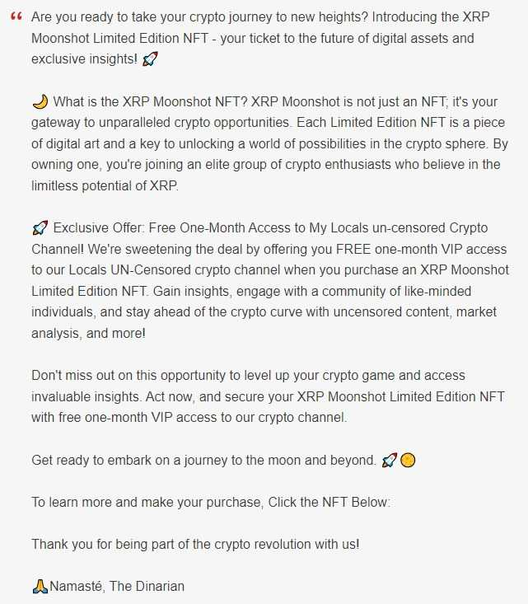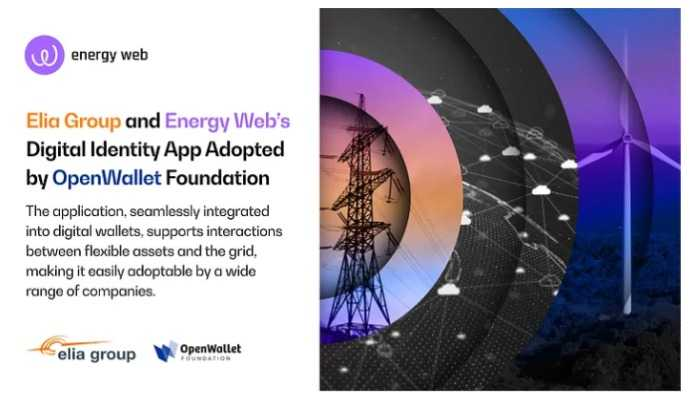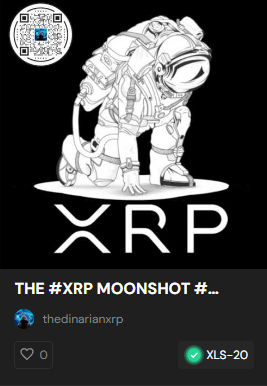Together, Elia Group and Energy Web have developed an application which can be seamlessly integrated into digital wallets, making it easily adoptable by a wide range of companies.
Brussels, Berlin, Zug, Switzerland — October 23, 2023 — The OpenWallet Foundation (OWF) has officially adopted a digital identity application which was developed by Elia Group and Energy Web as a new project. The application, which can be used to securely transfer identity information between different parties (including details about their flexible assets), can be easily integrated into digital wallet technology. Digital wallets are set to become commonplace; indeed, the European Union aims to provide all its citizens with access to a digital ID solution by 2030.
Flexible consumption demands secure identification
Our energy systems are becoming increasingly decentralised, driven by the rise in renewable energy sources and electrical assets. Flexible assets such as heat pumps and electric vehicles will enable consumers to adapt their energy use in line with the needs of the system: consumers will be able to charge these when affordable green electricity is available, store it for later use, and (in the case of electric vehicles and home batteries) feed it back into the grid when needed. In so doing, consumers will help to keep the grid in balance and will support the integration of renewable energy into the system, so accelerating the energy transition.
Secure and efficient methods will be required to safely integrate electrical assets into the system and allow them to interact with the grid in a trusted manner. Extensive information exchange will need to take place, with data relating to personal details, technical specifications, contracts and charging tariffs being swapped between individuals, assets, and companies. Digital wallets, which are on the verge of becoming commonplace across Europe, are expected to be key enablers of this data exchange.
Elia Group and Energy Web have been collaborating on projects related to the integration of electrical assets into electricity systems for a number of years.
A digital wallet for every citizen
In line with its digital goals for Europe, the European Commission is working towards ensuring that all of its citizens will be able to use a personal digital wallet. One technology that can facilitate the design of these digital wallets is self-sovereign identity (SSI), a highly secure approach that enables identity-related information to be safely verified and exchanged between different parties.
SSI systems typically involve three core roles:
- the holder, who manages data related to their identity by storing it in their digital wallet;
- the issuer, who is responsible for issuing the holder with identity-related data, often in the form of ‘verifiable credentials’;
- the verifier, or party which requires access to identity-related data.
Recognising the potential power of SSI, Elia Group and Energy Web began collaborating on the design of a digital identity application based on a pre-existing specification: the verifiable credential application programming interface (VC API) specification. Their software enables signed identity documents (stored on digital wallets as verifiable credentials) to be exchanged between an individual’s digital wallet and a third party. Elia Group and Energy Web chose to design their application based on a pre-existing specification that is familiar to a majority of companies. This means their solution can be easily integrated into a wide range of existing IT frameworks as companies design different digital wallets. Elia Group and Energy Web’s aim is to encourage energy companies, particularly small- and medium-sized energy companies, to adopt it.
“To ensure network security and stability, the integration of renewable energy sources into our energy systems will require household and industrial flexibility to be activated. SSI will be an important tool for creating a registry of decentralised and flexible assets that will allow us to monitor the state of the network and steer these decentralised assets.” Kris Laermans, Innovation at Elia Group
OWF adopts Elia Group and Energy Web’s innovative solution as a new project
Once the application was ready, Elia Group and EnergyWeb approached OWF, an organisation which promotes the implementation and use of open, secure and interoperable digital wallet technology. The OWF then adopted the application as an OWF project, making it the fourth time such a solution has been accepted by the organisation since its formation in February 2023. This will help the application to be widely used by companies as they design digital wallets.
“This collaborative effort between Elia Group, Energy Web, and the OpenWallet Foundation represents a significant step toward revolutionising the digital wallet landscape. By officially accepting this project, OWF is empowering the future of secure and interoperable digital wallets. Together, we’re advancing technology that will not only benefit the energy sector but also drive innovation beyond its boundaries, setting the stage for a more interconnected and secure digital world.” John Henderson, Senior Solution Architect at Energy Web
GitHub documentation, which includes the code for the project, can be accessed here.
Elia Group
Elia Group is an international energy company that comprises two transmission system operators. Through our subsidiaries in Belgium (Elia) and the north and east of Germany (50Hertz), we operate 19,349 km of high-voltage connections, meaning that we are one of Europe’s top 5 transmission system operators. With a reliability level of 99.99%, we provide society with a robust power grid, which is important for socioeconomic prosperity. We also aspire to be a catalyst for a successful energy transition, helping to establish a reliable, sustainable and affordable energy system.
Energy Web
Energy Web is a global non-profit accelerating the clean energy transition by developing open-source technology solutions for energy systems. Our enterprise-grade solutions improve coordination across complex energy markets, unlocking the full potential of clean, distributed energy resources for businesses, grid operators, and customers. Our solutions for enterprise asset management, data exchange, and Green Proofs, our tool for registering and tracking low-carbon products, are underpinned by the Energy Web Chain, the world’s first public blockchain tailored to the energy sector. The Energy Web ecosystem comprises leading utilities, renewable energy developers, grid operators, corporate energy buyers, automotive, IoT, telecommunications leaders, and more.













 All while Pfizer—a company with a $2.3 billion criminal fine for fraudulent marketing, bribery, and kickbacks—was given blanket immunity from liability and billions in taxpayer dollars to produce a vaccine in record time with no long-term safety data.
All while Pfizer—a company with a $2.3 billion criminal fine for fraudulent marketing, bribery, and kickbacks—was given blanket immunity from liability and billions in taxpayer dollars to produce a vaccine in record time with no long-term safety data.
























